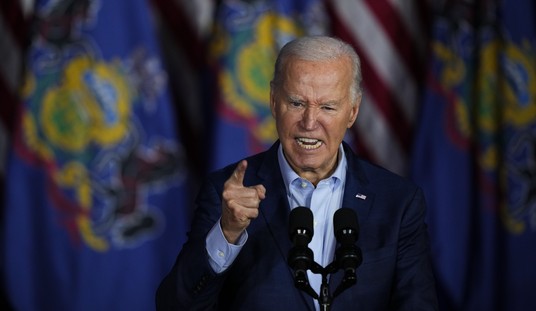In the 1990s, political theorists, historians and more than a few political leaders debated this question: Had "transnational forces" associated with globalization made the sovereign nation-state a dysfunctional and potentially dangerous political structure?
The 21st-century's revival of Great Power competition -- competition between powerful states that value their sovereignty -- indicates borders still matter.
The U.S. and communist China are quite powerful. China's disrespect for borders is fundamental to its clash in the South China Sea.
As the century's third decade approaches, evidence abounds that transnational forces have not rendered nation-states impotent. The 1990s debates, however, weren't intellectual fearmongering. Pervasive global media, cyber connectivity, commercial jets providing cheap international transportation, a global financial system with rapid money flows and an interconnected global trading network were challenging national borders and international legal norms.
Criminal and terrorist networks were exploiting the system's porosity. Defense analysts worried non-state transnational terrorist groups would acquire long-range missiles and weapons of mass destruction. High-tech terrorists would demonstrate nation-states could no longer protect their citizens.
Arguments that national sovereignty was passe, particularly in a Europe dominated by the EU, influenced the Clinton administration's 1999 decision to intervene in Kosovo. Human rights activists argued that legitimate governments did not commit genocide. Genocidaires should be toppled.
Czech Republic president and playwright Vaclav Havel applauded NATO's Kosovo War because it placed "human rights above the rights of state." Russia, however, deplored NATO's invasion. The cynical Kremlin later used "the Kosovo precedent" to justify invading Georgia, seizing Crimea and attacking Ukraine. Moscow claimed these interventions protected threatened ethnic groups.
Recommended
Others argued that Kosovo demonstrated moral values may have a national interest, and that states can act on this interest. However, it takes powerful nation-states to place human rights above the rights of human rights abusers, and employing that power entails systemic risks.
The Westphalian nation-state system evolved from the 1648 Peace of Westphalia that ended the 30 Years' War. That hideous war was a slow weapon of mass destruction that savaged Europe. Religious hatred, feuding dynasties, rising imperial powers (great in their context) and new technology (to include firearms and printing presses) sparked and then extended the conflict. Substitute feuding billionaires and global elites for royal dynasties, and the internet for printing presses and the 30 Years' War no longer looks like ancient history.
Westphalia's two key treaties, Osnabruck and Munster, set conditions for the formation of what over time (several painful centuries) became the modern nation-state system. Territorial sovereignty was a key principle -- a prince ruled in his own territory, so borders mattered. In this system of international relations, nations, whatever their internal governing structure, were to refrain from interfering in another nation's internal affairs. "Balance of power" (all elements of power but military foremost) would check inter-state conflict and punish aggressors.
Of course the system is imperfect and has weaknesses, in part because it has never been a complete system. The system has had to contend with "gaps" (anarchic regions) and "failed states" (often tribal empires with the trappings of modernity, not the governing institutions).
Yes, nations meddle in their adversaries' internal affairs. However, seizing territory fundamentally jolts the system. Is a cyberattack a war-provoking jolt? A consensus appears to be forming that major cyberattack could provoke armed retaliation.
China is a nation run by a totalitarian government that fiercely resists foreign political and economic interference. But in Beijing, Westphalia is for me, not thee. For two decades, Beijing has disdained international borders and seized maritime territory in the South China Sea belonging to Vietnam and the Philippines.
In 2016, the Hague Arbitration Court damned China's belligerence. The Hague tribunal, relying on the UN Convention on the Law of the Sea, ruled China had seized Filipino islets and stolen resources. Beijing ignored the verdict.
Now the American "balance of power" has entered the conflict, to check China's interstate expansion and protect U.S. national interests.
























Join the conversation as a VIP Member